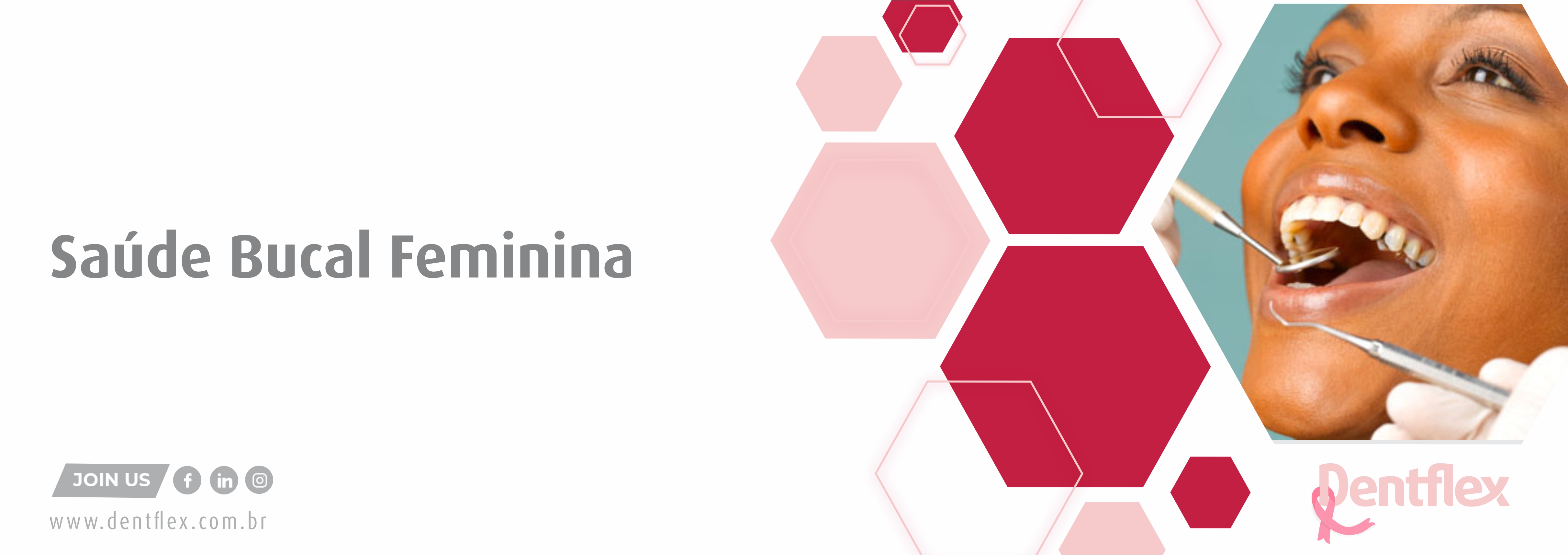Women's oral health

In the month dedicated to the theme of women's health care, specifically the care for breast cancer, we invited Drs. Cássia Utiyama Takahashi and Monique de Benedetto to talk about the care that women should have with women's oral health. Check out the tips below so that you can guide your patients to maintain a beautiful smile throughout their lives.
Care during childhood and pre-adolescence
At this stage, it is important to know that the teeth are not fully formed when they are born. The tooth finishes its mineralization around two years after pointing in the mouth. For this reason, at the time of changing teeth, permanent ones are more susceptible to decay.
We cannot forget the following points to ensure female oral health:
- The use of fluoride toothpaste and floss after meals.
- A balanced diet decreasing the intake of sugars and simple carbohydrates (breads, biscuits, etc.) and increasing the consumption of foods rich in calcium (milk and dairy products, fish, etc.), is essential to complete the formation of free teeth of carious lesions.
- A frequent pediatric dental evaluation is also important to assess whether bone development and tooth positioning are occurring correctly or whether there is a need for orthodontic or orthopedic interception.
during youth
In young women, in addition to maintaining good oral hygiene habits and low sugar intake, an issue that has been of great concern to modern dentistry is the acid erosion of tooth enamel. It has become more frequent due to the greater intake of acidic drinks and foods, such as soft drinks, energy drinks, citrus fruits, etc. Most industrialized products also contain acidifying substances such as preservatives. Diseases such as gastroesophageal reflux and bulimia frequently and devastatingly interfere in the erosion of tooth enamel. A regular visit to the dentist makes it possible to identify these problems. In these situations, the professional can guide the patient on how to control this acidity.
Around 35-40 years old, or even earlier, in some situations, gingival retraction is common, causing exposure of the dentin of the tooth roots. Hot and cold discomforts, called dentinal sensitivity, may arise. To prevent dentin sensitivity, again, careful diet is important. Furthermore, it is important to assess whether the dental contacts are correct; Teeth that receive excessive contact (called premature contacts) or in inappropriate directions (called interfering contacts) commonly experience gingival retraction and loss of tooth structure near the gingiva.
middle and old age
Decreased salivation after menopause or caused by continuous-use medications such as antihypertensives and antidepressants may favor the appearance of greater carious lesions. It is a challenge at this stage to prevent and treat root cavities, which very quickly lead to tooth loss.
During menopause, the report of dry mouth or burning sensation is also frequent. At this stage, (and indeed at all stages of life) drinking adequate amounts of water is very important.
And in case of pregnancy? Should care be changed?
Yes, before/during/after pregnancy there are special precautions that need to be followed.
Before a woman becomes pregnant, in the pregnancy planning phase, it is very important that oral hygiene care is intensified, brushing and flossing are essential for female oral health, reducing the number of pathogenic bacteria that can lead to diseases in the oral tissues, such as caries disease and periodontal disease, ie, gingivitis and periodontitis. Furthermore, these bacteria spread throughout the body.
It is also important that the woman go to a dental appointment and if she needs to undergo a curative procedure, the ideal treatment is to be done at this stage.
During pregnancy, care with hygiene continues and injuries, caries and periodontal diseases are common, due to hormonal changes, nausea, frequent changes in diet and, at the end of pregnancy, the presence of reflux in some women. If there is a need to perform a dental procedure, it should preferably be done in the second trimester, remembering that the pregnant woman can take intraoral radiographs if necessary, and receive appropriate local anesthetic.
After pregnancy, the mother will take care of both your oral health and your baby! And the dental appointment will be important for her to receive the guidelines regarding this care.
These are basic tips on female oral health care, but the ideal is to have a diagnosis about specific care for your oral health.
Source: Lira Odonto. Available at: http://www.liraodonto.com.br/a-saude-bucal-feminina-dia-internacional-da-mulher/. Access on: 10/27/2021.
